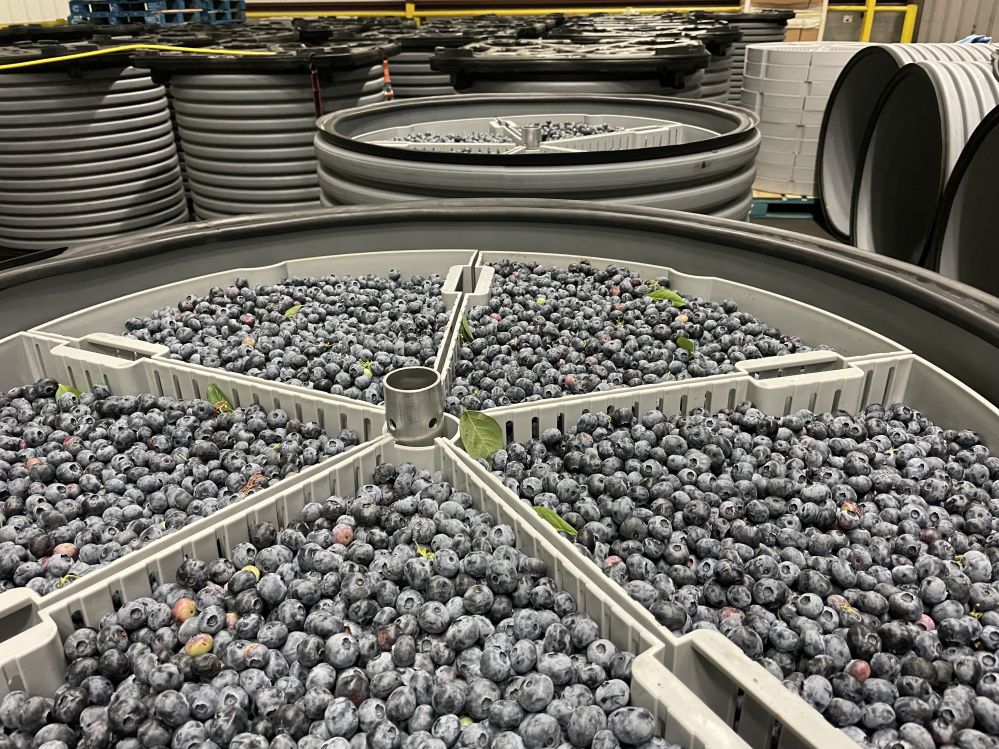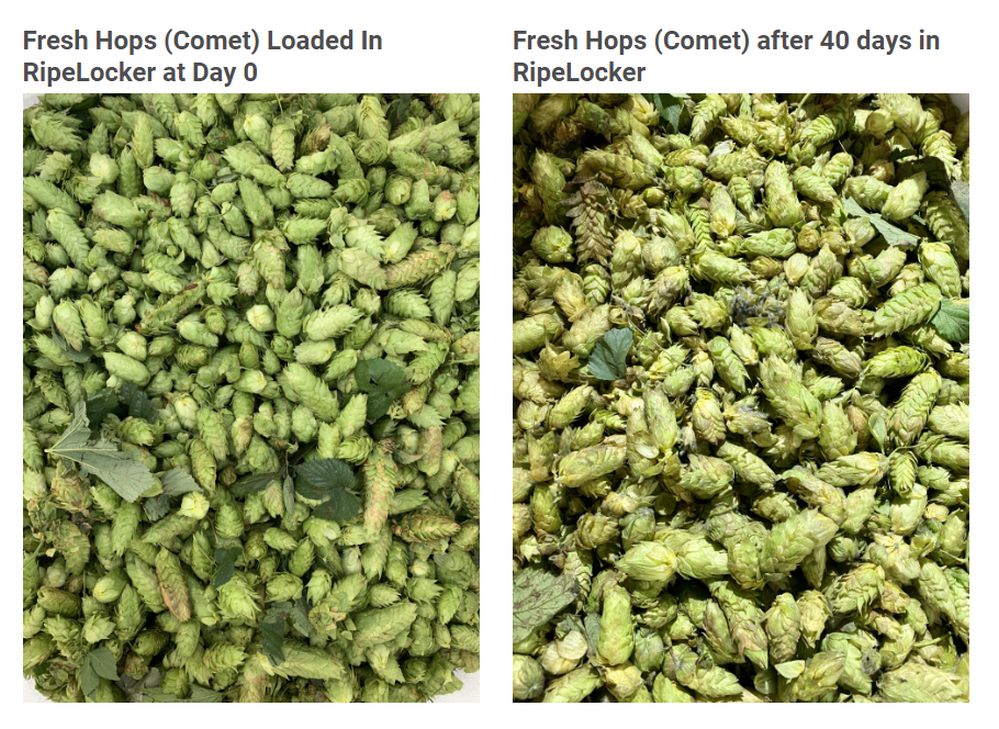Berry supplier Agrovision has struck a deal with Seattle-based startup RipeLocker to deploy its patented low-atmosphere vacuum chambers to extend the life of berries across its supply chain.
Agrovision will incorporate the technology into its global market offerings including consumer-facing brand, The Fruitist, which offers new varietals of raspberries, blueberries, and blackberries.
Described by Agrovision as the “first cost-effective, mass volume, postharvest storage solution tailormade for berries,” RipeLocker’s chambers effectively put fruit to sleep, delaying aging and decay and maintaining optimal freshness for up to 12 weeks without loss of quality, “three times the norm,” said Agrovision cofounder Steve Magami.
“The implications of this advancement are far-reaching: we can ensure prolonged freshness, access more distant markets, and introduce high-flavor varietals previously limited by shorter shelf lives.”
At the retail level, consumers will be able to access berries with “more aroma, crunch, flavor and higher nutritional value, indistinguishable from fresh-picked, while reducing shrink,” added the Los Angeles-based company, which has become a leading global supplier of premium blueberries over the past decade.

How it works
Cofounded by George Lobisser and his son Kyle in 2016, Ripelocker has developed re-usable, portable low-atmosphere chambers it claims can significantly extend the post-harvest life of everything from blueberries and walnuts to roses by creating a near-vacuum or ultra-low oxygen environment.
The approach, which reduces respiration by more than 50% on average, can help growers switch from air freight to ocean freight, reduce losses due to decay and pathogen control, achieve higher grading of fruit (with a higher price tag), and store fruit to enable sales during late season premium price windows, VP sales Julian Lewis told AgFunderNews in a recent interview.
According to Lewis, the tech has been through many iterations, “but we now have this chamber where basically, you put fresh produce in it, you pump it down [suck out the air to create a near-vacuum], and you can dynamically control the oxygen and CO2 levels inside.”
He adds: “Any kind of produce is likely to be an aerobic system that consumes oxygen and gives off carbon dioxide, and depending on what the produce is, we’ll very closely maintain that level dynamically, at the point that keeps it aerobic, but only just… and so it’s not quite a vacuum. We maintain the atmosphere at a level that’s tailor made for the produce type and basically put it to sleep.”
From blueberries and walnuts to fresh hops
Ripelocker is currently active in blueberries, cherries, and flowers, and is testing its tech with multiple other products including nuts and fresh hops.
Unlike modified atmosphere packaging (MAP), no nitrogen is pumped into Ripelocker’s system, explained Lewis. “All we do is pump air in and out. We don’t generally compare the technologies as they both have their own role to play, but as an illustration, MAP bags can typically store blueberries for three to four weeks, while the RipeLocker can store them for eight weeks and in some cases 12+ weeks.”
He added: “In an ultra-low oxygen environment, respiration of the fruit is still enabled with very few oxygen molecules in a low-pressure environment. But it also means we can enable much higher carbon dioxide levels which can also control senescence and inhibit ethylene action in some crops [ethylene is a plant hormone that fruit & veg produce naturally as they ripen].”
Due to this environment, ethylene biosynthesis can be inhibited, delaying ripening, while fungal pathogens are also suppressed, said Lewis, who noted that Ripelocker can also enable producers to pick riper, tastier, fruit and store it without the use of chemicals.
From air freight to ocean freight
According to Lewis, customers are working with RipeLocker to “reduce cost, increase revenue, or both. Take air freight. For [German discount retailer] Lidl in Europe, for example, they are basically saying that in the future, they won’t want produce that’s air freighted because it’s bad for the environment, so some journeys will become impossible. So if you want to get fresh produce from Latin America to Europe and the product can’t survive an ocean journey, you’re going to lose your access to Lidl.
“In a RipeLocker, you can literally take the slow boat.”
The Ripelocker system is designed to work in stationary storage applications and in transit, he explained. “We’ve sized the chambers so they can go into a shipping container, so there’s 39 chambers in a container and then the control system will go in there with the chambers.
“When reefers [refrigerated trucks] go into ships, they have power to drive the chilling of the reefer that can also drive the power of our units. And so we can have very long ocean journeys, let’s say from Latin America to China or to Europe, and this dynamic control continues.”





